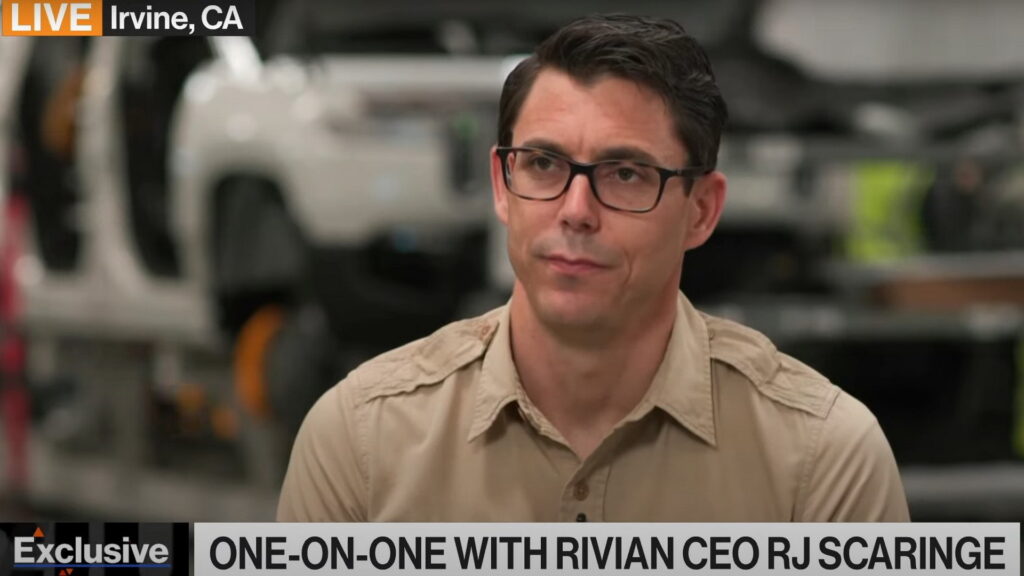The man at the helm says that he believes Rivian can over-deliver as it moves into more quantifiable territory
4 hours ago
 –>
–> 
–>
Rivian’s path to long-term sustainability has seemingly been a rollercoaster of highs and lows over the years. Despite that, its CEO is signaling not just his confidence in the brand but in its ability to better predict production needs as it ramps up this year. For Rivian, there’s no time like the present in which to improve its footing in the EV automaker race.
Working through challenges during the first full year of production seemed to be the name of the game for Rivian. It had a lot of fanfare as the first all-electric truck from a non-legacy brand. Then it had a lot of parts shortages that stunted production. It jacked up pricing and lost a bunch of cash but also secured a huge win over a new facility in Georgia and began to scale production.
Now, it’s looking like the full-scale ramp-up of production is about to take off. It just announced that delivered 12,640 vehicles during the first quarter alone. That’s a 48 percent increase over the same time span last year. RJ Scaringe pointed out the shift in a new interview.
Read: Rivian Hires Tesla, Meta, And Apple Veteran to Lead Communications

“In the first 12 months, we launched three products and the complexity of launching any product is incredibly high and we really felt that last year… what we saw in Q2 is the beginning of the supply chain really running in a healthy way… importantly, it’s not just what we saw in this quarter but what’s to come,” he said to Bloomberg.
We’re now at a point where we can be much more predictable to say ‘we believe we’re going to produce X number of vehicles this week, this day, this month’, he continued. That’s key because, according to Scaringe, that gives the team a level of “predictability in the business that in the first 12 months we really didn’t have.”
advertisement scroll to continue
All of this comes closely after Rivian revealed that its upcoming R2 SUV is going to launch at a price of $40,000. We won’t get a chance to see it until 2024 and it won’t go on sale until 2026 but that might be good for the brand. It’ll give Rivian more time to continue ramping production on the R1T and the R1S. During that process, it should only improve its production practices.
[embedded content]
